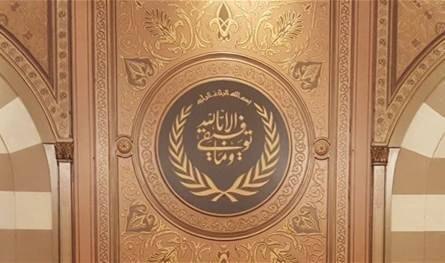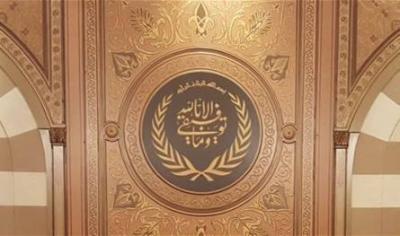Since the parliamentary elections, Sunni MPs have been holding open meetings. Some of them have met with Prime Minister Najib Mikati, while others have turned to Dar Al-Fatwa for its blessing. Specifically, the Beirut MPs are acting as if they are the "mother of the boy." Their activities vary; some are eager to lead any meeting, even if it only includes themselves and another MP to form a bloc, while others work quietly behind the scenes to build bridges for communication, aiming to establish a Sunni parliamentary dialogue circle under the banner of Dar Al-Fatwa. Saad Hariri has stepped out of the spotlight, and the Beirut MPs have taken the initiative. Nature abhors a vacuum, and its absence has no horizon or timing, amid news of his possible move from the Gulf to live in America. Two days ago, Dar Al-Fatwa began sending invitations to Sunni MPs to participate in a meeting it intends to hold on the 24th of this month. The goal of the meeting is to announce a document that affirms national constants, foremost among them is the Taif Agreement and Sunni representation in public administrations, especially after the presence of the sect in administration and appointments has diminished due to assignments to employees from other sects under the pretext of vacancies and the decision to halt hiring. The situation for Sunni MPs is not going well; at least this is the feeling currently shared among the sect's MPs.
On the front of the Sunni MPs' bloc, Beirut MP Nabil Badr is active, counting on the meeting that will gather him with fellow MPs under the umbrella of Dar Al-Fatwa, emphasizing that "the Sunni sect cannot remain without leadership or reference, exposed to marginalization and oppression." Badr, who previously worked on organizing the session that included several Sunni MPs with Prime Minister Najib Mikati, is now carving out a distinct space for himself as a representative of the capital, Beirut, whose parliamentary and political representation cannot be weakened. Notably, the upcoming meeting, chaired by Grand Mufti Abd al-Latif Deriyan, will be marked by the absence of former and current prime ministers. This demand has been highlighted by those organizing the meeting and preparing for it, to avoid presenting the meeting as an attempt to rehabilitate the club of former prime ministers and to thwart the desire of some to chair the meeting or for their presence to be misinterpreted. Most importantly, the MPs want to keep the meeting focused on its intended goal of creating a nucleus for a Sunni MPs bloc that includes about eleven MPs from Beirut and the regions out of a total of 14, while three MPs are expected to decline the invitation, as they refuse any sectarian alignment; among these are Halima Qaaqour, Ibrahim Mneimeh, and Osama Saad.
Since preparations began for such a meeting, Mufti Deriyan preferred the presence of former President Fouad Seniora, while others favored inviting current Prime Minister Najib Mikati. Ultimately, the decision was made to refrain from inviting any of the former and current prime ministers and to keep the meeting under the umbrella of Dar Al-Fatwa in an attempt to regain the initiative. MP Badr believes it is time to fill the void in the Sunni arena, asserting that "it is impossible and unnatural to depict the sect as if it has become absent from important entitlements or to limit its presence to marginalized currents in the current phase." He continued to argue that the presidential elections will be among the topics to be discussed along with other matters that require a stance. He refuses to name a presidential candidate but affirms the qualities of the future president, the most important being that "he should not be from the ranks of opposition or provocative." In summary, he seeks "a presidential candidate who is not hostile to Hezbollah, close to March 14, and not provocative to the March 8 forces, while restoring Lebanon's relationship with its Arab brothers and friends."
Since the parliamentary election results were announced, Badr has been convinced that their arrival at the parliamentary session necessitates playing a role that transcends the sect and region to the capital. However, current circumstances and difficulties, along with sectarian division, force the MP to retreat within his environment and sect and find himself compelled to represent it and defend against attempts at marginalization by any other group.
What occurred during the election of the Speaker of the House and subsequent parliamentary committees was a bitter experience for Sunni MPs. There was an agreement with the duo to allocate a percentage of the Sunni MPs' votes to President Berri, hoping for the sect's representation in the parliamentary committees and to keep the status quo; however, the surprise was that the Sunni share was allocated and divided, resulting in the Sunnis being unrepresented in the committees according to prevailing norms. The second experience was the nomination of the Prime Minister, where Sunni MPs, particularly those from the capital, insisted on proving their presence in this entitlement and confronting attempts to impose others' desires upon them. Their refusal was aided by the figures they achieved in the elections without favor from any party.
Based on the ongoing preparations for the Dar Al-Fatwa meeting, it can be said that efforts are being made to fill the void in the Sunni arena and compensate for Hariri and his movement's absence. Hariri is not the main subject here; rather, it is about restoring the role and status of Sunnis in the political arena and thwarting attempts to monopolize their MPs and scatter them. The test is difficult. A gathering of MPs may not cover the absence of leadership, and the transition to a parliamentary bloc requires a leader and a president, which is a rejected logic in the vocabulary of their majority. However, it remains an attempt; if successful, it will have its presence on the eve of the presidential elections, and it is not far from possible that the next Prime Minister may be one of its MPs or that they collectively grant a Sunni mandate to any government candidate, even if it is Mikati, to support his current government.




